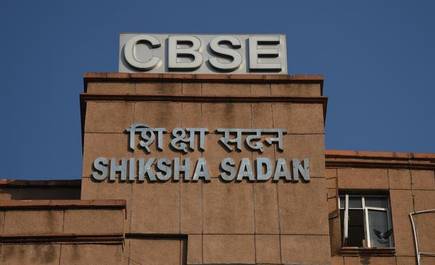Cycles4change challenge: Bengaluru gets most cycle-friendly city tag
Bengaluru won the top spot in the all-India Cycle4Change campaign by the Ministry of Housing and Urban Affairs that finally ranked 11 cities. These cities were ranked for being pioneer cities and will get a grant of Rs 1 crore for boosting cycling infrastructure. Bengaluru was declared the most cycle-friendly city in the country out of the 107 cities that participated in the competition. Bengaluru, Bhubaneswar, Chandigarh, Kohima, Nagpur, New Town Kolkata, Pimpri Chinchwad, Rajkot, Surat, Vadodara and Warangal are the cities in the top 11. The challenge aims to transform cities for cycling, besides creating a community to encourage cycling.
As a next step, 25 cities will be involved in the mission to develop cycle-friendly infrastructure. This will include creating adequate policies, setting up dedicated departments and creating pan-city plans.
Source: WION
CBSE declares class 12th results
Forced to use an alternative evaluation method because of the COVID-19 restrictions, the CBSE recorded a high pass percentage in the Class 12 board exam results released on July 30th. Out of the total registered 13,94,561 students, 12,96,318 (99.37%) had passed. The percentage was 99.13 among boys and 99.67 for girl students, with over 70,000 students overall securing 95% or more marks. Kendriya Vidyalaya schools registered 100% pass status. Only 6149 (0.47%) students were in the compartment category this year as compared to 87,000 students last year.
Source: Hindustan Times
Read more: Opinion: The new CBSE Class 12 evaluation system is at best a make-shift arrangement
Amidst the surge in Kerala, India continues to report over 40,000 cases a day
India has reported 41,649 cases and 593 COVID fatalities in the past 24 hours. Total infections now stand at over 31.6 lakh, with 4.23 lakh deaths. The recovery rate improved to 1.29% and the fatality rate stands at 1.34%, according to the Union Ministry for Health and Family Welfare.
But the situation is alarming in Kerala, which is witnessing a sudden surge in cases. On July 30th, Kerala reported over 20,000 cases, 14,651 recoveries and 116 deaths in the previous 24 hours. The Centre has rushed a special team to take stock of the Kerala situation. Meanwhile, CM Pinarayi Vijayan informed that the state has the capacity to administer one crore vaccine doses every month and will request the central government to provide more doses.
As per the health ministry, 45.6 crore vaccine doses have been administered across the country so far.
Source: Hindustan Times
Read more: COVID vaccination for children: Under-18s can wait for now, say experts
Uttar Pradesh: Survey shows 71% seroprevalence
As per a recent sero survey conducted by ICMR, 70% population have developed antibodies to COVID-19 in Uttar Pradesh. People who have received both doses of COVID-19 vaccination reported a higher presence of antibodies as compared to those who had not received even a single shot. The survey, part of the fourth all-India serosurvey, was conducted in 11 UP districts during the last 10 days of June and the first week of July and covered high population districts like Lucknow, Kanpur, Varanasi, Gorakhpur, Agra, Prayagraj and Ghaziabad.
The survey also showed that Kerala remains at the bottom in terms of seroprevalence, as only 45% population remains exposed to the virus. MP, Rajasthan and Bihar are some of the states with high sero prevalence.
Source: Hindustan Times
Karnataka, Delhi top states in terms of most vehicles older than 20 years
In the background of the 2018 Supreme Court judgment which ordered a ban on all petrol vehicles more than 15 years old and diesel vehicles over 10 years old, Karnataka and Delhi, with 75 lakh vehicles, had the most number of vehicles more than 20 years old. This information was shared by the Minister of State for Environment Ashwini Choubey. UP was third with 26.2 lakh such vehicles, followed by Kerala with 20.67 lakh vehicles, Tamil Nadu with 15.99 lakh vehicles and Punjab with 15.32 lakh vehicles.
Andhra Pradesh, Madhya Pradesh, Telangana and Lakshadweep were kept out of the list as they are not registered with a centralized Vahan portal. The minister also informed that no kind of assessment has been undertaken as yet to evaluate how much pollution is caused by such vehicles.
Source: Hindustan Times
Also read:
- Chennai Buzz: Rapid COVID testing at Airport | Water channels to be restored | Driverless metro in phase-II…and more
- Mumbai Buzz: Restrictions relaxed | 644 housing projects blacklisted | MU to take action against 32 engineering colleges
- Bengaluru Buzz: Spike in COVID cases | Water Board mulls discount for RWH … and more
Compiled by Rishabh Shrivastava
